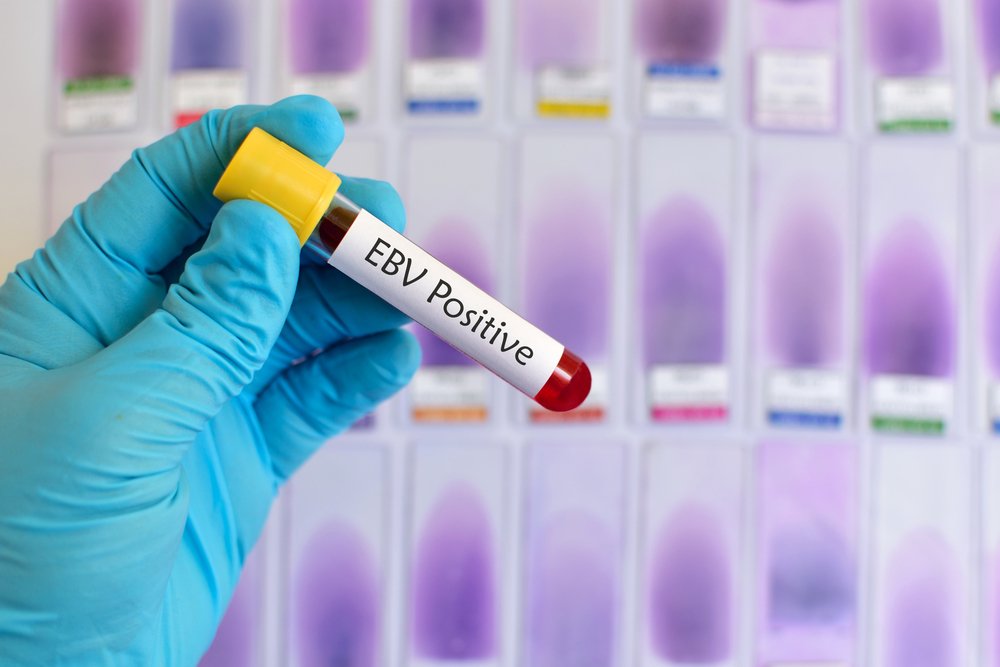ATA188, Which Kills B-Cells Targeting Epstein-Barr Virus, Shows Promise as MS Treatment
Written by |

An investigational treatment called ATA188 that wipes out B-cells targeting the Epstein-Barr virus (EBV) has shown promise as a multiple sclerosis treatment, a Phase 1 clinical trial involving a small patient group indicates.
The trial, conducted in Australia, covered six people with primary or secondary progressive MS. B-cells are a type of white blood cell that the immune system uses to fight invaders.
ATA188’s developer, Atara Biotherapeutics, was scheduled to present the preliminary results of the trial at the American Academy of Neurology’s annual meeting in Boston. The event, which started April 22, runs through April 28.
The title of the presentation is “Symptomatic and objective clinical improvement in progressive multiple sclerosis patients treated with autologous Epstein-Barr virus-specific T cell therapy: Interim results of a phase I trial.”
Researchers from the Queensland Institute of Medical Research (QIMR Berghofer) and the University of Queensland collaborated with Atara on the trial.
Nearly all MS patients are infected with EBV. Usually, a specific type of T-cell helps control the infection and eliminates B-cells and antibody-producing plasma cells that target EBV.
There is considerably less T-cell response to EBV in MS, however. This means T-cells are unable to marshal B-cells and plasma cells in a way that can kill the virus, researchers believe.
B-cells and plasma cells with EBV have been found in brain lesions in MS patients. And studies have shown that immune activity against EBV correlates with the development of lesions and increases in MS patients’ disability.
Researchers believe B-cells and plasma cells with EBV are involved in the destruction of myelin, a protective coating of neurons whose deterioration is involved in MS. This idea is in part supported by the recent approval of Ocrevus (ocrelizumab). Ocrevus targets B-cells, but not plasma cells.
ATA188 uses T-cells derived from a patient or donated as starting material. With a patient’s own cells, or autologous cells, researchers first gather T-cells from a blood sample. Then they train the cells to recognize markers of EBV before injecting them back into the patient. This approach makes it possible to find and eliminate virus-specific B-cells and plasma cells in the brain and spinal cord.
The patients in the trial received four escalating doses of ATA188 developed from their own T-cells. After the last dose, at six weeks, they were followed for 20 weeks.
Symptoms of three of the six patients improved after ATA188 treatment. They reported less fatigue, better quality of life, increased ability to perform daily activities, and improved hand movement and coordination. Two of the three had secondary and one primary progressive MS.
Over the 26 weeks of the trial, none of the six patients’ disease worsened, as measured by the Expanded Disability Status Scale (EDSS). The symptom improvements correlated with increased immune cell response toward EBV, researchers said.
“The clinical data reported by Dr. [Michael] Pender, Dr. [Rajiv] Khanna and their colleagues from the first prospective trial of EBV-specific T-cell therapy in MS suggest that it is possible to achieve objective clinical improvements in MS patients with advanced disease by targeting EBV,” Chris Haqq, the chief scientific officer of Atara, said in a press release.
“This clinical trial directly follows our previously reported findings from a patient with SPMS who showed a durable response to autologous EBV-CTL therapy that lasted for more than three years,” added Khanna, coordinator of QIMR Berghofer’s Center for Immunotherapy and Vaccine Development.
The main goal of the trial was to assess the treatment’s safety. Researchers reported no adverse effects from its use.
“The observed clinical improvements in patients with the highest levels of EBV reactivity support the hypothesis that targeting EBV-positive B-cells and plasma cells may be an effective therapeutic strategy in the treatment of MS,” Haqq said. “We look forward to additional development with both the autologous and allogeneic versions of ATA188 to further evaluate the potential therapeutic utility of targeting EBV in the treatment of MS.”
“At QIMR Berghofer, we have focused for years on elucidating the role of EBV in human disease, and we are excited to be working with Atara Bio to help realize the promise of expanding immunotherapy beyond oncology to autoimmune conditions,” Khanna added.


